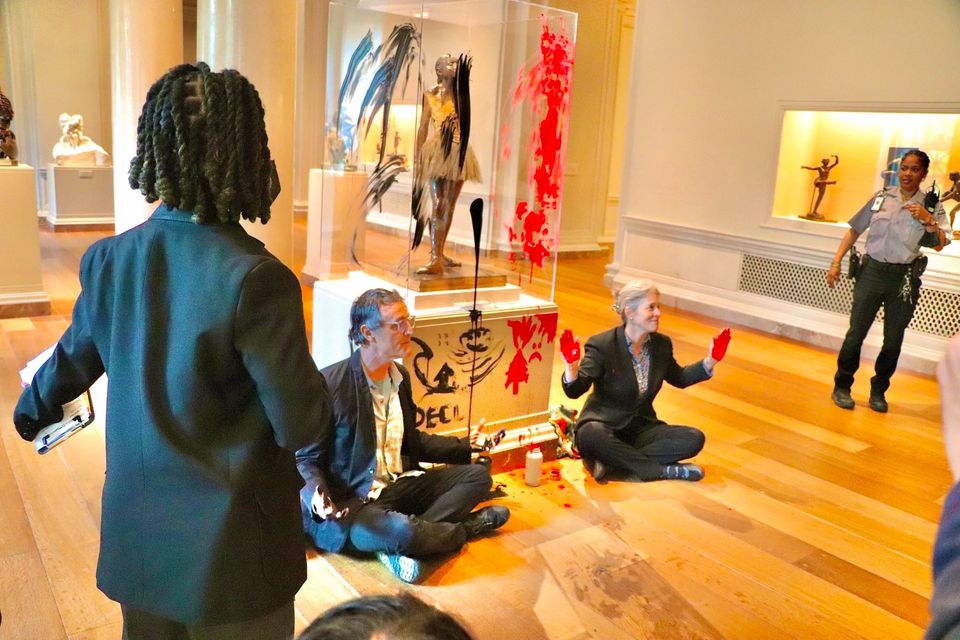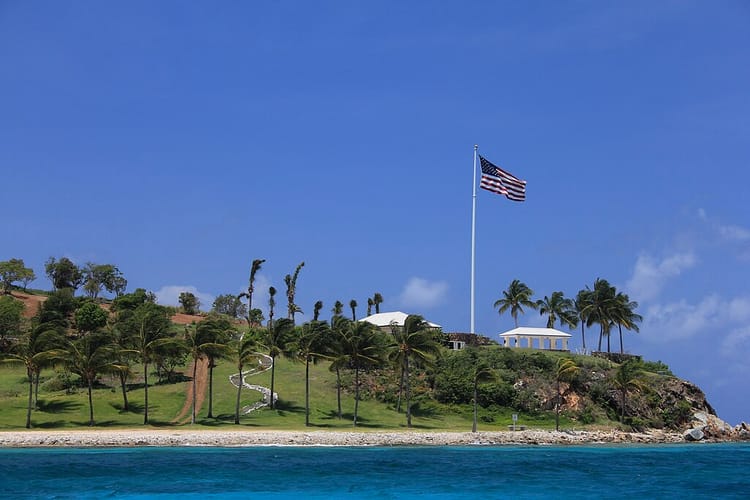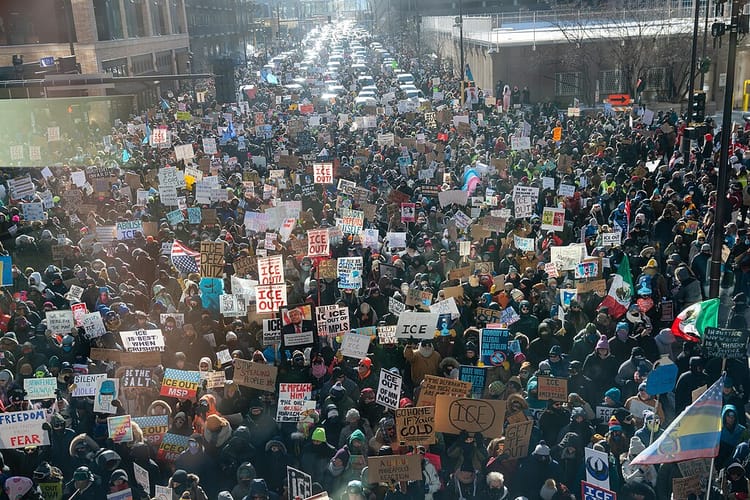The Real Free Speech Threat

Over the past few years requests for respectful speech and factual information have been recast as attacks on free speech just as efforts funded by some of the country's largest corporate interests have begun to genuinely erode citizens' First Amendment rights.
If your book contract gets canceled because you help white supremacists break into the Capitol? That's an attack on free speech. A university decides not to host your talk after receiving thousands of complaints from students? Violation of the First Amendment! But the First Amendment never guaranteed reach, nor did it promise us that Americans can say whatever we like without risk of being embarrassed or mocked, trolled or even canceled. What it did promise was that "Congress shall make no law respecting an establishment of religion, or prohibiting the free exercise thereof; or abridging the freedom of speech, or of the press; or the right of the people peaceably to assemble, and to petition the Government for a redress of grievances."
It seems like a whole lot of conservatives have misplaced their pocket Constitutions, because while they talk about being "forced" (by whom?) to use a person's preferred pronouns as an infringement on free speech, Republican state governments have been rapidly criminalizing protest. While they wring their hands about the chilling of free speech on campus because this or that talk gets canceled, states are passing book bans and universities are getting rid of their entire history departments lest anyone utter the words "critical race theory." Harassment of those who study disinformation is way up the past year because the word has been recast as censorship. This week, for example, Rep Jim Jordan was demanding emails and meetings with leading disinformation researchers, the latest in a flurry of records requests, subpoenas and lawsuits designed to harass academics who study disinformation. Jordan and his allies are being helped in their crusade by anti-climate-action activists like Michael Shellenberger, who have their own reasons for wanting to muddy the water on what constitutes disinformation, especially as social media platforms fall under increasing pressure to tamp down on the spread of outright falsehoods. In his March testimony to the House Select Committee on the Weaponization of the Federal Government, Shellenberger—who has moved in his career from PR guy for big green groups to "firebrand" co-founder of ecomodernist thinktank the Breakthrough Institute to champion for nuclear energy to climate skeptic, gubernatorial candidate, solver of the homelessness problem (spoiler alert: he didn't solve it) and now, finally, "journalist" who claims to have broken the Twitter Files story—wrote:
"The censorship-industrial complex pressures social media platforms to censor content relating to climate change and energy. I speak from experience as someone who has been attacked by an ongoing censor-and discredit campaign that has been waged against me since I wrote a viral article in June 2020 to announce the publication of my book, Apocalypse Never. In response to my article, multiple think tanks quickly and falsely claimed to have “debunked” its contents. Those fake debunkings became the basis for Facebook to censor my posts, even ones that don’t have to do with climate change, to this day."
There's a lot to unpack here. First off, it seems pretty clear that Shellenberger's move to rebrand himself as a journalist is not just about trying sit at the cool kids table—he's trying to secure what he perceives to be the greater First Amendment rights of the press. I'm sure he's probably trying to use it to get access to various public records, emails, etc for free as well (anyone can file a Freedom of Information Act request, but if you're not a journalist you might be charged; even if you are a journalist it's likely you'll pay a fee to receive records, but it's generally less). Then, let's talk about how Facebook has always censored ads and sponsored posts related to climate change as "political." I don't recall Shellenberger ever having anything to say about that. As for the debunking of his book, I started to make detailed, footnoted corrections of his book and stopped about halfway through because I had more than 50 pages worth of corrections, so it's hard to believe that all of the many debunkings of his work are false. But according to Shellenberger, it is censorship to call something inaccurate. Who's to say what's "information" or "disinformation" after all? The truth is in the eye of the beholder.
Except...we have long-standing systems for coming to collective understandings of truth. The peer-review process, for example, runs academic work through multiple rounds of review before it can be published in an academic journal. And one peer-reviewed study does not a truth make! That study needs to be challenged and replicated. Lots of other studies need to deliver the same or at least very similar results for something to venture into the domain of "fact."
These fragile men perceive any criticism of them as censorship, yet see nothing wrong with coordinated harassment campaigns against academics whose work they don't happen to like. But it's not just ridiculous and hypocritical, it's also dangerous. One of the key steps on the path to authoritarianism is to shake people's faith in experts, to blur the lines around fact, to make reality seem surreal.
And unfortunately, the choose-your-own-truth direction that America has taken in recent years is not necessarily new. What we're seeing now shares a lot in common with the beliefs of early colonialists, who were by and large Calvinists, a particular type of Puritan that scoffed at the need for priests and bishops and embraced instead the idea that each individual should interpret the Bible for themselves.
As the manufactured "culture war" rages on, it provides cover for America's bend toward authoritarianism. Citizens are being jailed for peaceful protest. At Cop City, protestors were arrested—and even killed—and all 42 were charged with domestic terrorism for sitting in trees. Organizers who arranged bail funds for the arrested protestors were arrested themselves and charged with money laundering and charity fraud. All those who have been arrested in conjunction with the protest are still waiting to see whether racketeering (RICO) charges will be leveled against them for organizing a protest. Yes, those are the laws created to deal with the mob, being applied to protest.
Meanwhile, the Altanta City Council approved the facility despite countless hours of public comment in opposition to it.
Critical infrastructure laws that massively increase the jail time and fines for protest near anything deemed "critical infrastructure," which at this point is everything from overpasses to railroads, pipelines to police stations, have now been passed in 20 states, with more proposed all the time. Domestic terrorism charges, which carry a sentencing enhancement that can land people in jail for a decade or more, have become frighteningly common for peaceful, non-violent protests. Climate protestors who put water soluble finger paint on a display case at the National Gallery were charged last week with conspiring to commit an offense against the United States. It's the most straightforward and flagrant violation of "the right of the people peaceably to assemble." Anyone who's genuinely concerned about free speech as opposed to securing their own right to comfort or to expand their control of others should be very worried about it.
Hi there, thanks for reading! If you are a paid subscriber, double thanks: You are subsidizing this newsletter for more than 13,000 other readers. Hero! If you're not a paid subscriber yet and you can spare $5 a month, please consider upgrading. We have lots of stories in the works that subscribers will get an early peek at, not to mention ad-free and early podcast episodes. Thanks for your support!
This Week's Climate Must-Reads
- As insurers cut coverage because of climate change, they invest in fossil fuels - Brianna Sacks reports for The Washington Post that the Senate has launched an investigation into seven insurers that have begun to decline to insure homes and/or businesses in disaster prone states and areas, while continue to underwrite and invest in major fossil fuel projects that make those disasters more intense and more likely.
- Climate Crisis Is on Track to Push One-Third of Humanity Out of Its Most Livable Environment - Abrahm Lustgarten's book on internal migration driven by climate change is due out next year and is bound to be a great read. In the meantime his write-up of a study published in Nature last month with the latest numbers on climate-related migration has me thinking of something author and journalist Sonia Shah said at this year's Society of Environmental Journalists conference: that when she first started reporting on the "migration crisis," a Greek official told her "there is no migrant crisis, we can support these people. There is a crisis of welcoming." On the same panel University of Chicago Law School professor Carmen Gonzalez talked about the potential for more welcoming immigration policies to function as climate reparations, given that most people will be immigrating from countries made instable and drained of economic resources by colonial forces to colonizer countries.
- [Study] Corporate political activity in the context of unhealthy food advertising restrictions across Transport for London: A qualitative case study - In 2019, the UK government moved to ban advertising of foods high in fat, sugar, and/or salt on public transit. This fascinating study in PLOS One documents food industry efforts to shape those regulations, and the results of those efforts. Interesting in its own right, and also important insight for those working to ban fossil fuel ads.
- The Revolving Door at Public Utilities Commissions? It's Alive and Well. For the LA Times, Sammy Roth digs into fascinating new research from the Climate Social Science Network on just how corrupt and corruptible public utilities commissions--where a whole lot of decisions about clean energy get made--really are.
- "Game changing" spate of climate lawsuits – In the wake of the Supreme Court's decision in the Boulder climate case, climate litigation is accelerating in the U.S. Dharna Noor reports for The Guardian.





